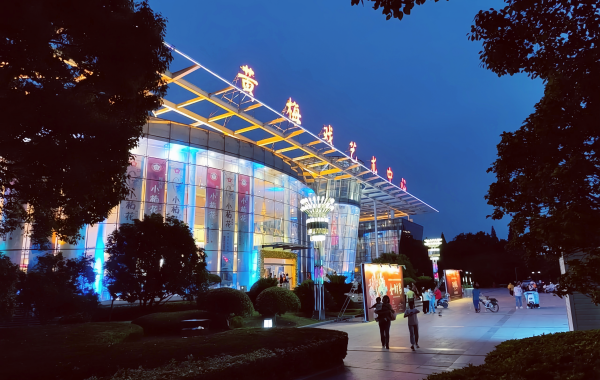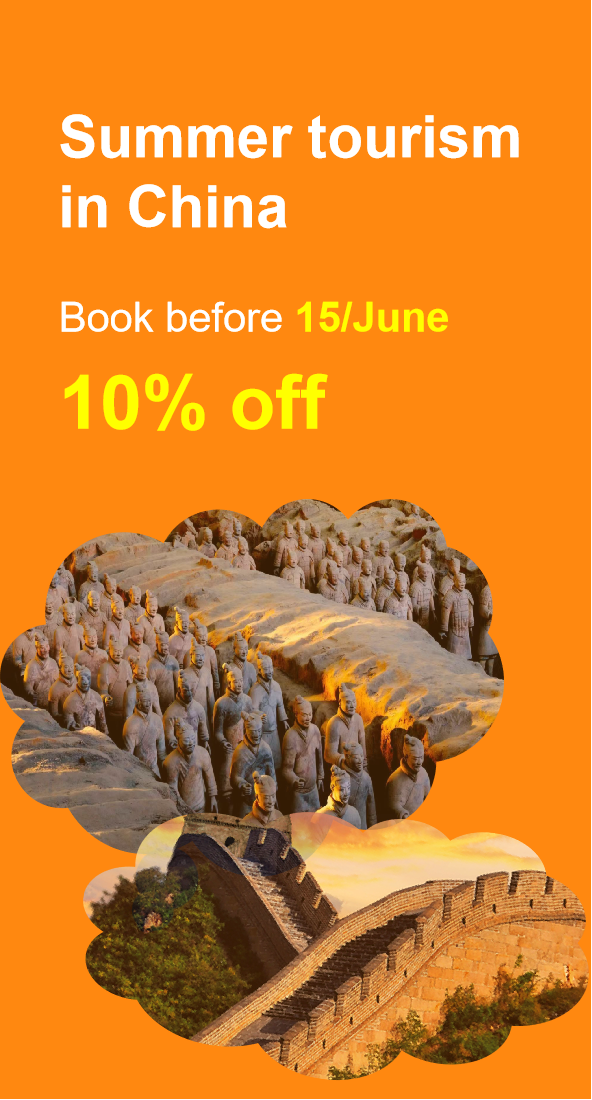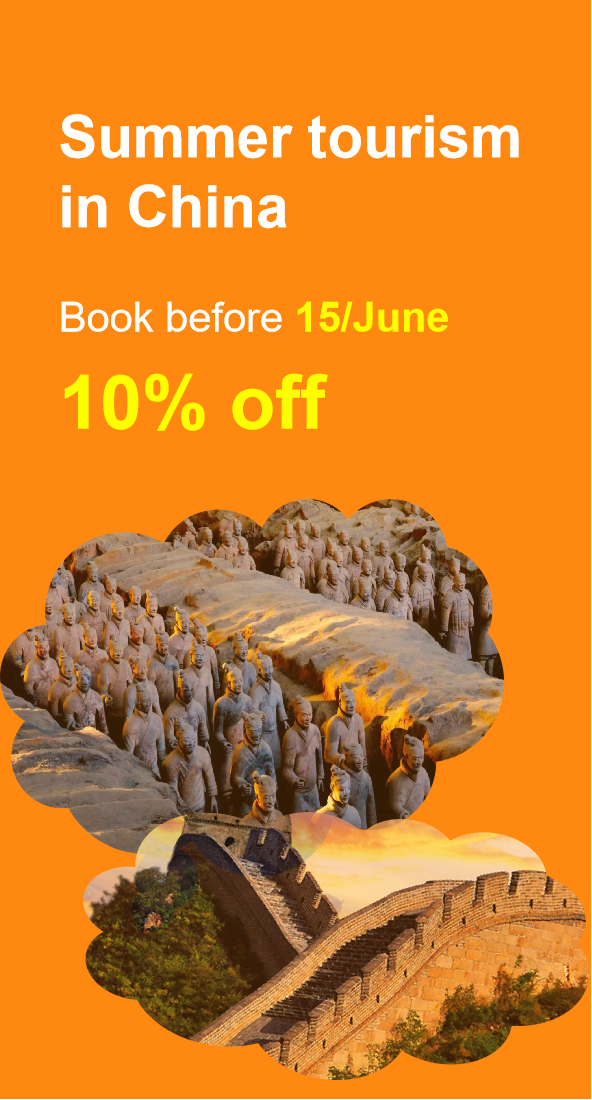Huangmei Opera
Huangmei Opera: A Time - Honored Cultural Treasure of China
Huangmei Opera, also known as Huangmei Tune or Caicha Opera in Chinese, is one of the most beloved and distinctive traditional Chinese operas. It originated in the Huangmei area of Hubei Province and later flourished in Anhui Province, especially in Anqing City. This opera form ingeniously combines folk ballads, dances, and simple dramatic elements. Huangmei Opera is celebrated for its gentle and melodious music, vivid and relatable characters, and heart - touching stories. It serves as a vivid mirror reflecting the life, emotions, and values of the common people in the Yangtze River Delta region, offering a unique glimpse into Chinese folk culture.
 History of Huangmei Opera
History of Huangmei Opera
A. Early Beginnings
The roots of Huangmei Opera can be traced back to the folk songs and dances in the Huangmei region during the Qing Dynasty. Local farmers would sing Huangmei ballads during their leisure time, especially during festivals and harvest seasons. These ballads were simple in lyrics and melody, often depicting daily farm work, love stories, and local legends. They were passed down orally from generation to generation, forming the musical foundation of Huangmei Opera.
In the mid - 19th century, some folk artists began to incorporate simple dramatic performances into the singing of Huangmei ballads. They added basic actions and dialogues to make the performances more engaging, gradually transforming the folk songs into a primitive form of opera. This was a crucial step in the evolution of Huangmei Opera, as it started to take on the characteristics of a comprehensive performing art.
B. Development in Anhui
In the late 19th and early 20th centuries, Huangmei Opera found a fertile ground for development in Anhui Province. Anqing, in particular, became the center of Huangmei Opera's growth. Many professional opera troupes were formed here, attracting talented artists from different regions. These troupes began to refine the performance style of Huangmei Opera, improving the music, acting, and stage design.
During this period, Huangmei Opera started to absorb elements from other opera forms, such as Peking Opera and Kunqu Opera. For example, it adopted some of the acting techniques and costume styles, which enriched its own artistic expression. At the same time, it maintained its unique folk characteristics, setting it apart from other operas. This process of integration and innovation made Huangmei Opera more mature and appealing to a wider audience.
C. Modern Era
After the founding of the People's Republic of China in 1949, Huangmei Opera entered a new phase of development. The government provided strong support by establishing professional opera schools and troupes, training a large number of new talents. New plays were created based on modern themes, reflecting the social changes and the lives of ordinary people in the new era.
In the late 20th century and into the 21st century, with the advancement of technology and the increasing globalization of culture, Huangmei Opera has also embraced new opportunities. It has been introduced to international audiences through performances abroad and online platforms. At the same time, it continues to innovate at home, combining traditional elements with modern music and stage effects to attract younger generations.
 Distribution Areas of Huangmei Opera
Distribution Areas of Huangmei Opera
A. Provinces
1. Anhui Province: Anhui is the heartland of Huangmei Opera. Anqing City is renowned as the "Hometown of Huangmei Opera." Here, there are numerous professional Huangmei Opera troupes, such as the Anhui Huangmei Opera Theater. These troupes perform regularly in theaters across the province, attracting large audiences. Additionally, many amateur Huangmei Opera groups exist in communities and schools, keeping the tradition alive at the grassroots level.
2. Hubei Province: As the birthplace of the early Huangmei ballads, Hubei still has a strong Huangmei Opera culture. Cities like Huangmei and Wuhan have their own Huangmei Opera troupes and performance venues. The opera is deeply rooted in the local folk culture, and many traditional plays are still popular among the people.
3. Jiangxi Province: Due to its geographical proximity to Anhui and Hubei, Jiangxi has also been influenced by Huangmei Opera. In cities such as Jiujiang and Nanchang, Huangmei Opera performances are occasionally held, and some local artists have incorporated elements of Jiangxi's folk culture into the opera, creating a unique regional style.
B. Scenic Spots and Cultural Venues
1. Anqing Huangmei Opera Art Center: Located in Anqing, this is a modern cultural complex dedicated to the promotion and preservation of Huangmei Opera. It has a large theater that hosts regular Huangmei Opera performances, featuring both classic and new plays. The center also has exhibition halls that display costumes, props, and historical documents related to Huangmei Opera, allowing visitors to learn about the opera's history and development.

2. Huangmei Opera Theme Park in Huangmei County: This theme park is a great place to experience the charm of Huangmei Opera in a fun and interactive way. Visitors can watch street performances of Huangmei Opera snippets, participate in workshops to learn basic singing and acting skills, and explore replicas of traditional Huangmei Opera stages. It offers a comprehensive cultural experience for both locals and tourists.
3. Anhui Provincial Museum: The museum has a section dedicated to traditional Chinese operas, including Huangmei Opera. Here, visitors can see a collection of Huangmei Opera costumes, facial makeup patterns, and musical instruments. Through multimedia displays and guided tours, they can gain a deeper understanding of the artistic characteristics and cultural significance of Huangmei Opera.
 Features and Unique Skills of Huangmei Opera
Features and Unique Skills of Huangmei Opera
A. Music and Singing
Huangmei Opera is known for its gentle and melodious music. Its main musical instruments include the Huqin (a two - stringed bowed instrument), the Pipa (a plucked string instrument), and the Dizi (a bamboo flute). The music is often based on traditional folk tunes, with a simple and catchy melody.
The singing style of Huangmei Opera is characterized by its natural and unadorned quality. The singers use a soft and sweet voice to express the emotions of the characters. There are different singing techniques for different roles. For example, female roles often use a high - pitched and flexible voice to convey innocence and tenderness, while male roles have a more robust and resonant voice to show strength and determination.
B. Acting and Gestures
The acting in Huangmei Opera is relatively simple and natural, focusing on expressing the inner emotions of the characters through subtle gestures and facial expressions. Unlike some other operas that rely heavily on exaggerated movements, Huangmei Opera actors use gentle body language to convey meaning. For example, a slight tilt of the head or a soft smile can express a character's shyness or happiness.
Eye movements are also an important part of Huangmei Opera acting. Actors use their eyes to communicate with the audience and other characters on stage, expressing a wide range of emotions such as love, anger, and sadness.
C. Unique Performance Elements
1. Fan Play: The fan is a common prop in Huangmei Opera. Actors use the fan to enhance their performances, expressing emotions and adding visual beauty. For example, a slow wave of the fan can represent elegance and grace, while a quick flick can show anger or excitement. Different folding and unfolding techniques of the fan also have specific meanings in the context of the performance.
2. Handkerchief Play: Similar to the fan, the handkerchief is another important prop. Actors can hold, wave, or toss the handkerchief to express various emotions. A handkerchief held close to the chest can symbolize love or longing, while throwing it away can represent rejection or anger.
 Costumes, Facial Makeup, and Appearance in Huangmei Opera
Costumes, Facial Makeup, and Appearance in Huangmei Opera
A. Costumes
1. Design and Materials: Huangmei Opera costumes are designed to be simple yet elegant, reflecting the lifestyle and aesthetic preferences of the common people. They are usually made from lightweight and comfortable materials such as silk and cotton. The costumes are often brightly colored, with soft pastel shades being commonly used to create a gentle and harmonious visual effect.
2. Types of Costumes: There are different types of costumes for different roles. Female roles' costumes include the "Huadan" (young female) costume, which is usually short - sleeved and has a floral pattern, showing the innocence and liveliness of young girls; and the "Qingyi" (mature female) costume, which is long - sleeved and more formal, representing the dignity and elegance of mature women. Male roles' costumes include the "Sheng" (male lead) costume, which is often a long gown with a belt, showing a sense of refinement and heroism.
B. Facial Makeup
1. Symbolism and Meanings: Unlike some other operas with complex facial makeup patterns, Huangmei Opera has relatively simple facial makeup. The makeup is mainly used to enhance the natural beauty of the actors and highlight the characteristics of the characters. For example, a light pink blush on the cheeks can represent a young girl's shyness or a woman's tenderness.
2. Patterns and Styles: In general, the facial makeup of Huangmei Opera is divided into two main styles: "Jing" (painted - face) for villainous or powerful characters and "Sheng" and "Dan" (male and female leads) for more ordinary and relatable characters. The "Jing" makeup may use darker colors to create a fierce and intimidating look, while the "Sheng" and "Dan" makeup is more natural - looking, with only slight enhancements to the eyes and lips.
C. Appearance and Hairstyles
Female characters in Huangmei Opera often have elaborate hairstyles. They may wear hairpins, flowers, and other ornaments to add to their beauty. The hairstyles vary depending on the age and status of the character. For example, a young girl may have a simple ponytail with a flower, while a noblewoman may have a more complex updo with multiple hairpins and jewels.
Male characters' hairstyles are relatively simpler. They usually have their hair neatly combed and tied back, with a headband or a hat in some cases to show their status or personality.
 How to Experience Huangmei Opera for Foreigners
How to Experience Huangmei Opera for Foreigners
A. Watching Performances in Theaters
1. Choosing a Theater: For foreigners visiting China, watching a Huangmei Opera performance in a professional theater is a great way to experience this art form. The Anhui Huangmei Opera Theater in Anqing and the Wuhan Huangmei Opera Theater in Hubei are excellent choices. These theaters offer high - quality performances with English subtitles or audio guides in some cases, making it easier for foreign audiences to understand the plot.
2. Booking Tickets: Tickets for Huangmei Opera performances can be booked online through official theater websites or third - party ticketing platforms. It is advisable to book tickets in advance, especially during peak tourist seasons, to ensure a good seat. Some theaters also offer special packages that include dinner or a backstage tour before the performance, providing a more immersive experience.
3. Pre - performance Preparation: Before watching the performance, it is helpful to do some research on Huangmei Opera. You can read about the basic elements of the opera, such as the different roles, music, and unique skills. Watching some short video clips of Huangmei Opera online can also give you a sense of what to expect and enhance your appreciation of the performance.
B. Participating in Workshops and Cultural Activities
1. Finding Workshops: Many cultural institutions, universities, and tourism companies in Anhui and Hubei offer Huangmei Opera workshops for foreigners. These workshops provide an opportunity to learn about the basic skills of Huangmei Opera, such as simple singing techniques, fan play, and handkerchief play. The workshops are usually led by experienced Huangmei Opera actors or teachers who can provide guidance and feedback.
2. Duration and Content: The duration of the workshops can vary from a few hours to a whole day. During the workshop, you will learn about the history and culture of Huangmei Opera, try on costumes, and even have a chance to perform a short scene under the guidance of the instructor. This hands - on experience will give you a deeper understanding of the art form and create unforgettable memories.
C. Exploring Huangmei Opera - related Scenic Spots
1. Visiting Museums and Exhibitions: As mentioned earlier, the Anhui Provincial Museum and the Huangmei Opera Art Center have exhibitions related to Huangmei Opera. Visiting these places allows you to see a collection of costumes, props, and historical documents, and learn about the development of Huangmei Opera through multimedia displays and guided tours.
2. Strolling through Ancient Streets: In cities like Anqing and Huangmei, there are ancient streets that retain a traditional atmosphere. Walking along these streets, you may come across street performances of Huangmei Opera snippets. You can stop and watch these performances, interact with the actors, and take photos, experiencing the charm of Huangmei Opera in a real - life setting.
D. Interacting with Local Artists and Enthusiasts
1. Joining Local Cultural Events: In Anhui and Hubei, there are often local cultural events and festivals that feature Huangmei Opera performances. By participating in these events, you can meet local Huangmei Opera artists and enthusiasts. You can chat with them, ask questions, and learn about their experiences and insights into the art form, gaining a more authentic and in - depth understanding of Huangmei Opera.
2. Using Social Media and Online Communities: If you are interested in Huangmei Opera but are not currently in China, you can still connect with Huangmei Opera fans and artists through social media and online communities. There are many Facebook groups, WeChat public accounts, and YouTube channels dedicated to Huangmei Opera. You can join these communities, share your thoughts, and learn from others. Some artists may even offer online classes or Q&A sessions, allowing you to learn about Huangmei Opera from the comfort of your own home.
What Our Clients Say?
Based on 10,000+ traveler reviews











